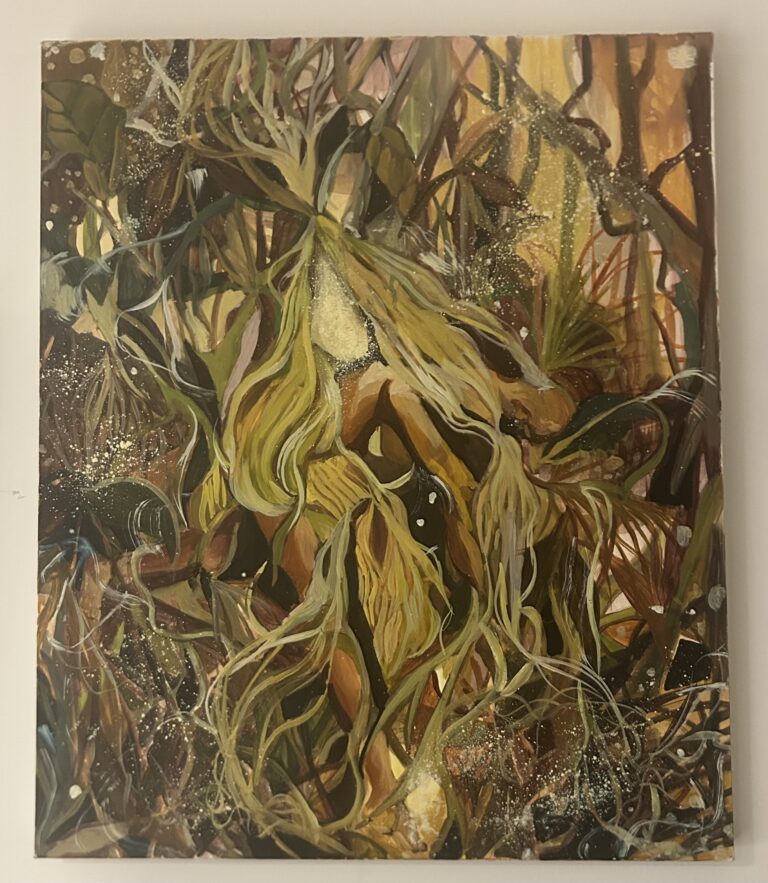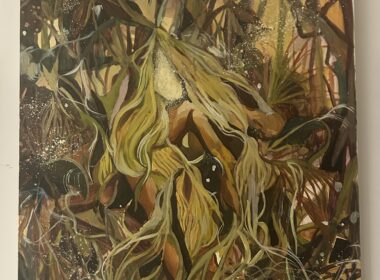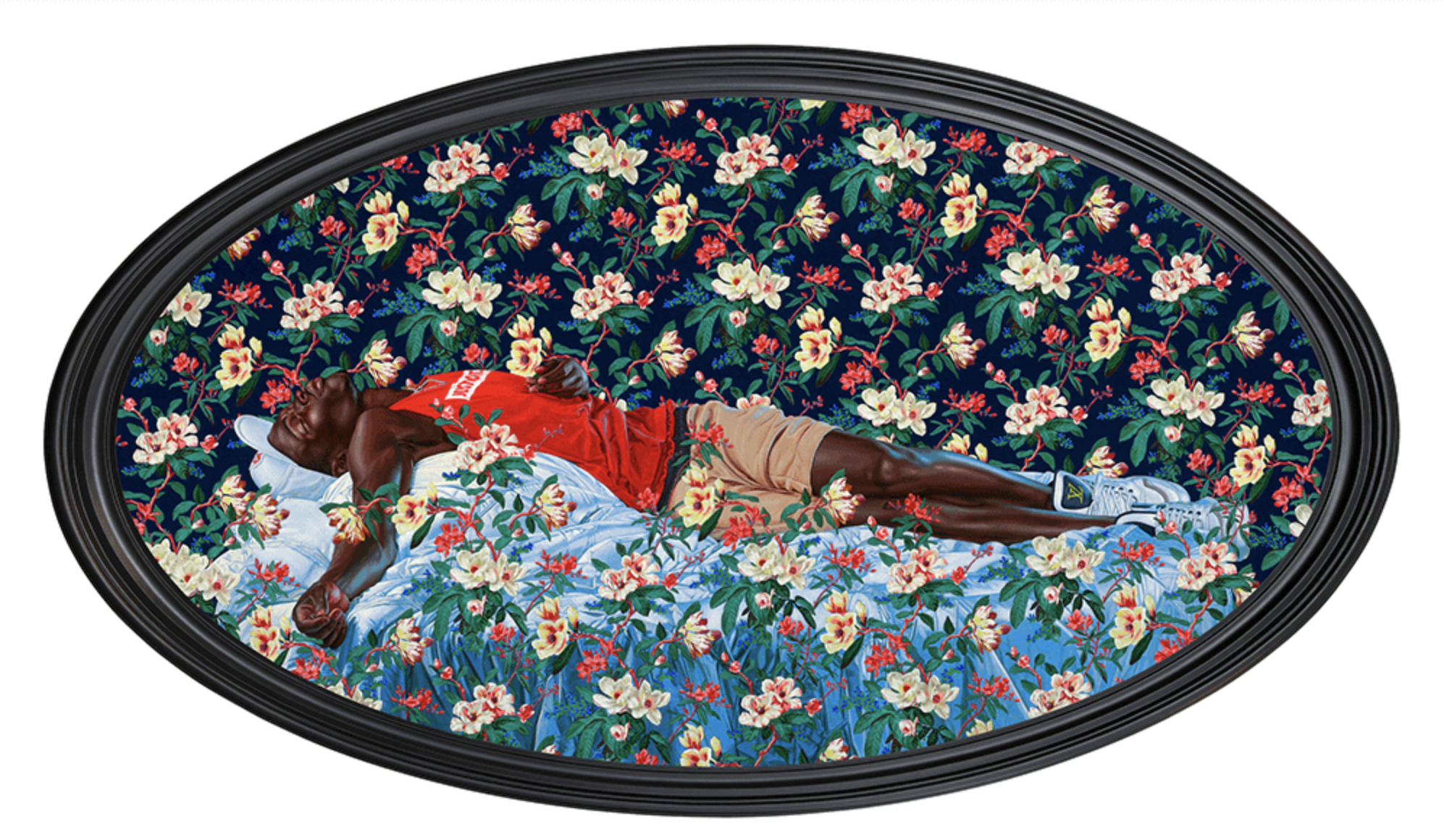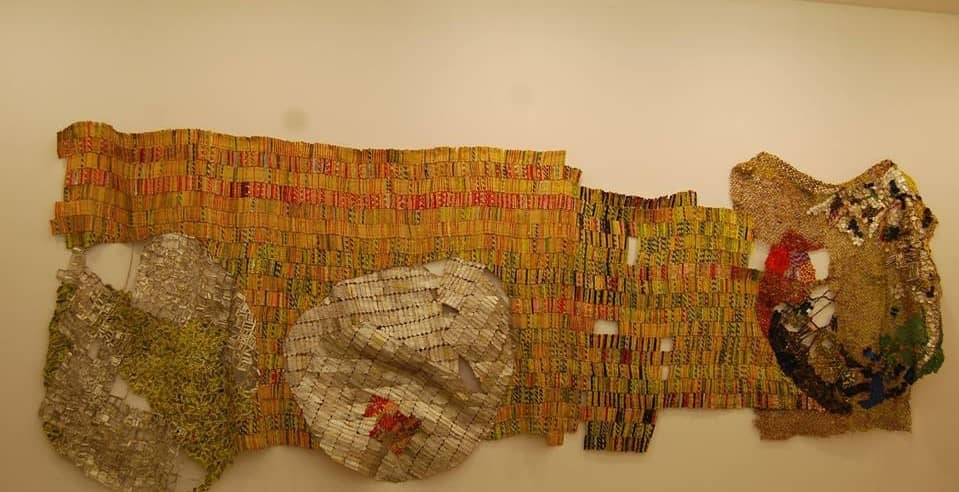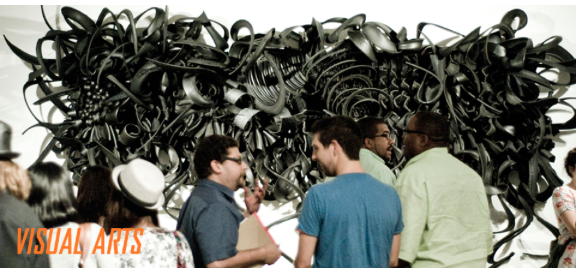2/3/2033 – Fayneese Miller, president of Hamline University, responds to its faculty’s call for dismissal. The College Board drastically revises its AP African American studies course. Writer Gregory Allen Howard dies at 70. Ebony G. Patterson becomes the 2023 recipient of the David C. Driskell Prize. And Kapwani Kiwanga is to represent Canada at the 2024 Venice Biennale. Read more in This Week in Black Art and Culture.
Faculty Demands Resignation of Hamline University President Fayneese Miller
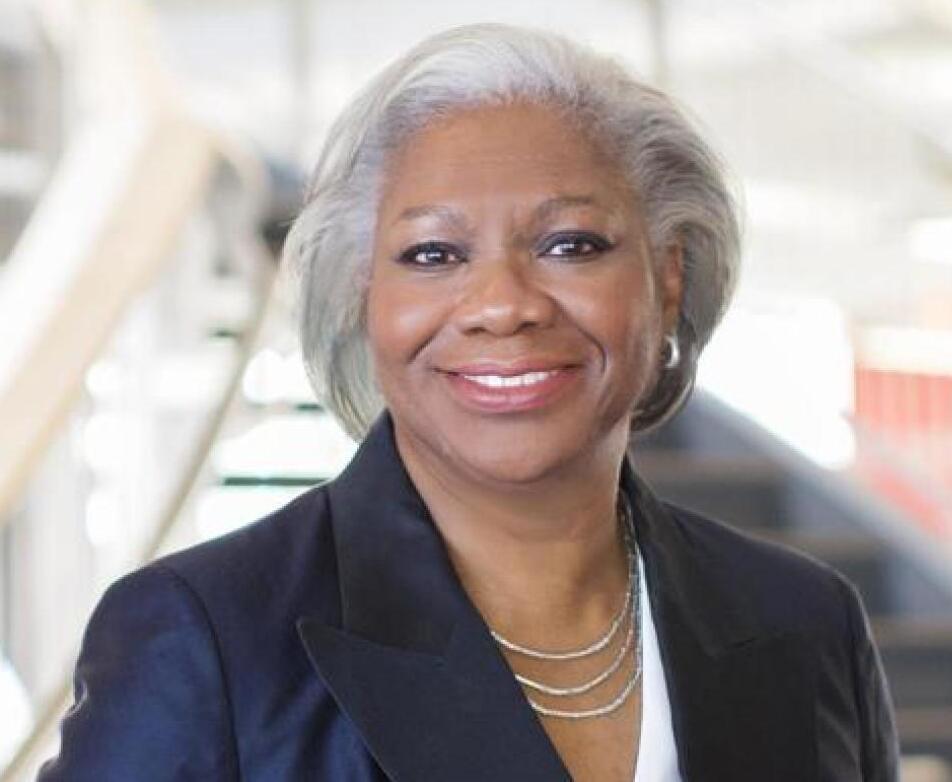
Hamline University staff are demanding the resignation of President Fayneese Miller after the school declined to extend the contract of an adjunct who presented artworks depicting the Muslim prophet Muhammad, student publication The Hamline Oracle reported. It is the latest development in an incident concerning former adjunct professor Erika López Prater, who recently launched a complaint against Hamline after its Office of Inclusive Excellence wrote a system-wide email in November condemning her behavior as “Islamophobic.” Since then, President Miller has recanted her administration’s usage of the phrase.
Earlier this week, 71 out of 92 faculty members voted in favor of formally seeking Miller’s resignation, adding in an official statement that the school’s administration “mishandled” the situation and that “serious damage has been done to the image of Minnesota’s oldest institution.”
“In response to the current events and crisis facing the Hamline community concerning academic freedom, the faculty of Hamline University stand by these statements:
“We are distressed that members of the administration have mishandled this issue and great harm has been done to the reputation of Minnesota’s oldest university.
“We, the faculty of Hamline University, stand for both academic freedom and the education of all students. We affirm both academic freedom and our responsibility to foster an inclusive learning community. Importantly, these values neither contradict nor supersede each other.
“… As we no longer have faith in President Miller’s ability to lead the university forward, we call upon her to immediately tender her resignation to the Hamline University Board of Trustees.”
The Oracle also disclosed a group of student leaders’ written letter in Miller’s support. It published Miller’s statement the following day:
“I greatly appreciate and thank you for the opportunity to respond to the question of the recent faculty vote. First and foremost, I want the students and the faculty to understand how deeply I appreciate them and their affection and dedication to Hamline University. At Hamline, the faculty and I both take great care in how our students receive and participate in their education. Supporting our students and honoring our mission requires both listening to the concerns of all members of our community and working collaboratively to uphold our values. I believe we can do both.
“For more than 20 years, I was a classroom professor and taught under the principles of academic freedom. Today, that concept is still central to our mission at Hamline. As president of Hamline University, my charge includes upholding academic freedom as a cornerstone of higher education. I will continue to work with students, faculty and the entire Hamline University community to support the best in liberal arts education with care and respect for all.
“I am keenly aware, as is the university as a whole, of the importance of strengthening the trust and confidence both students and faculty have in this 169-year-old institution. I, as an individual, and the university as a whole, will continue to build on that trust not just through our words but also through our actions.”
But only the university’s board of trustees can decide on Miller’s status.
World Art lecturer López Prater was refused permission to teach a spring semester course after displaying two figurative images of the prophet Muhammad, including a famous Medieval Islamic picture, on Oct. 6. Prater offered a warning before exhibiting the photographs. Still, one Muslim student in attendance, Aram Wedatalla, was outraged by their appearance. Islamic academics such as historian Christiane Gruber pointed out that the works in Prater’s lecture were created with the goal of reverence and devotion, not idolatry. However, some observant Muslims do not produce or consciously see figurative images of Muhammad.
In a university-wide email, Assistant Vice Principal of Inclusive Excellence David Everett called the classroom incident “undeniably rude, insulting and Islamophobic.” When reached by Hyperallergic, López Prater described how the accusations have impacted her:
“I am committed to continue participating in conversations that illuminate and celebrate the broad diversity within Islam—historically and contemporaneously—with my colleagues and students, Muslim and non-Muslim,” López Prater told the publication. “This is an opportunity for us to mend bridges collectively, and to strive toward greater understanding, education, and reconciliation.”
López Prater has expressed gratitude to the multiple Muslim and Islamic groups who have shown public support for her at this time, highlighting the Muslim Public Affairs Council, CAIR-National, Muslims for Progressive Values, and the Association for Iranian Studies Committee for Academic Freedom in particular.
The trustees have acknowledged they are “actively involved” in assessing the university’s rules and procedures in this type of scenario. However, they have not replied to several demands for clarification on potential next moves. Miller stated her intention to remain in a letter published Thursday night in The Oracle.
Criticism Erupts Over Florida’s Rejection of AP African Studies Course
Following smaller-scale pilot programs, the College Board unveiled a revised syllabus for its new Advanced Placement African American Studies course, which will be available to high school students nationwide in 2024. Visual art will be emphasized in the college-level course, but practically all the works that students must view are by artists who are no longer alive.
Opposition to the curriculum started in January when Florida’s Republican governor, Ron DeSantis, declared he would forbid the curricula, citing the draft version. Most of the current political information that Florida Governor Ron DeSantis referenced in rejecting the course for Florida schools has been removed. The College Board specifically eliminated discussions of critical race theory, Black Lives Matter, Black feminism, mass incarceration, reparations, and the Black LGBTQIA+ experience. The College Board also eliminated Black authors and academics linked to such movements.
DeSantis is set to run for president before the end of his term. According to state education officials, the course was not historically correct, breaking a state statute that controls the way racial topics are taught in public schools. Following DeSantis’ departure, it appears that the College Board will have removed these obligatory topics from the course; they are now just suggested as material for “sample projects.”
bell hooks, Kimberlé W. Crenshaw, Ta-Nehisi Coates, and Roderick Ferguson are just a few of the notable Black scholars whose work and theories have been eliminated from the course’s prerequisites.
The College Board introduced the course’s framework on Wednesday. Divided into four modules, each a reading, viewing, or listening requirement, it is designed to encourage students to engage with the arts. Most of the visual art content has been displayed widely in museums across the nation, although some lesser-known pieces are featured. And “Black conservatism” has been added as a topic for study.
Examples of James Van Der Zee’s photographs of people of Harlem are considered necessary for students learning about photography at the start of the 20th century. When a living artist’s works are included in this course, their more recent works are presented as examples of earlier ones. However, these are only the required pieces, and thus instructors have the option to teach their students much more. A recommended project regarding African American performance art and an entire section devoted to the Black Arts Movement give hints that the class might, in fact, involve more art.
In an interview, the College Board’s president, David Coleman, claimed that none of the changes were made to appease political pressure but rather for pedagogical reasons. “At the College Board, we can’t look to the statements of political leaders,” he said, adding that “the input of professors” and “longstanding AP principles” were responsible for the adjustments.
Additionally, College Board representatives asserted on Wednesday that they had a time-stamped record demonstrating that the last revisions to the curriculum were made in December, before the Florida Department of Education wrote to the College Board informing it that the course would not be permitted in Florida high schools.
During the course’s initial test this academic year, the College Board heard comments that the secondary, more theoretical sources were “quite dense” and that students engaged more with primary sources, which, Coleman said, historically have been the cornerstone of AP courses. Other state lawmakers and civil rights organizations across the nation criticized the state for rejecting the AP course. If the state would not change its mind, three Florida high school students declared they would sue the governor. Additionally, more than 200 professors of African American history signed an open letter protesting the modifications. Despite the College Board’s changes, at this time, there is no confirmation of a reversal of Florida’s rejection. Meanwhile, 60 schools around the country are testing the new course.
Remember the Titans Award-Winning Screenwriter Gregory Allen Howard Dies
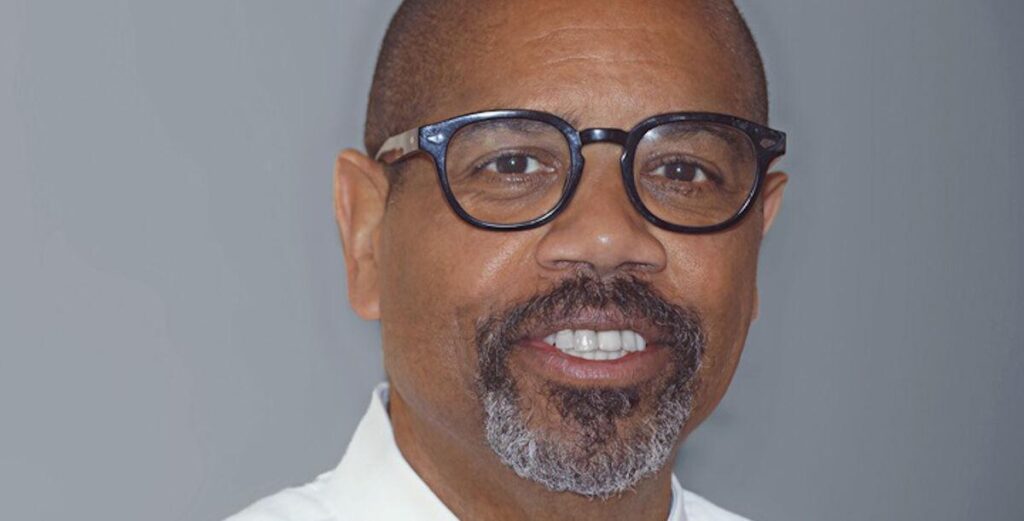
Gregory Allen Howard, the Academy Award-winning screenwriter of Remember the Titans, passed away in Miami on Friday after a brief illness, his publicist confirmed to several media sources. He was 70.
Best recognized for writing the script for the Denzel Washington and Jerry Bruckheimer-produced 2000 sports classic, Howard was born in Norfolk, Virginia. His family relocated 10 times before settling in Vallejo, California. In 1974, he earned a bachelor’s degree in American history from Princeton. He traveled to Los Angeles after a brief stint on Wall Street and attempted to become a screenwriter. He returned to his birthplace after experiencing little success.
Then, Howard uncovered the tale of the 1971 TC Williams High School football team, the Titans, who won a state title in the early 1970s, when integration was just beginning. Howard also attempted to produce a film based on a script he created on Harriet Tubman, the famous abolitionist who escaped slavery, beginning a 25-year odyssey to bring her tale to the big screen in 1994. Howard created and authored the screenplay, making him the first African American to compose a $100 million drama and the only African American to write a $100 million spec movie in film history.
Remember the Titans became a box office hit and a classic in the genre of feel-good sports films. Howard’s script was awarded the Black Reel Award. He wrote the story for Ali (2001), which had four credited screenwriters and starred Will Smith as Muhammad Ali. And 25 years after authoring the first draft, Harriet, based on the biography of abolitionist Harriet Tubman, was released in 2019, leading to the production of other of Howard’s screenplays, including Night Witches and Rise. Howard garnered several honors during his career, including two NAACP Image Awards, the renowned Christopher Award, the Howard University Paul Robeson Award for creative merit, and the Heartland Film Festival Award for excellence in screenplay.
David C. Driskell Prize Goes to Ebony G Patterson
In appreciation of her contributions to the world of African American painting, Ebony G. Patterson will receive the David C. Driskell Prize in 2023. Since 2005, the Museum has awarded this prize yearly, demonstrating its continued commitment to fostering creative innovation and encouraging the study of African American artists and researchers.
Based in Kingston, Jamaica, and Chicago, Patterson is noted for her multi-layered works in a range of mediums that combine gorgeous, lush imagery, color and texture with darker underlying themes addressing societal and political injustices. Her intricate compositions, which initially may look joyous, entice the observer to find deeper realities of racial class, social divide, and political brutality. These interrogations investigate the legacies inherent to post-colonial places, frequently memorializing and remembering the lives of individuals deemed socially invisible/ unvisible.
“Ebony G. Patterson’s striking work asks the viewer to consider tough questions about global social and racial inequality, while at the same time commemorating the lives and struggles of marginalized people throughout the world,” said Rand Suffolk, Nancy and Holcombe T. Green, Jr., director of the High. “We are honored to recognize her important practice and considerable contributions to African American art with the 2023 Driskell Prize.”
Over the past decade, her work has been featured in over 50 solo and group exhibitions. It is found in the collections of prestigious institutions such as the Los Angeles County Museum of Art (LACMA), the National Gallery of Jamaica in Kingston, the Perez Art Museum in Miami, the Speed Art Museum in Louisville, Kentucky, The Studio Museum in Harlem, New York, and the Whitney Museum of American Art in Harlem, New York, among others. The High acquired her work … they stood in a time of unknowing … for those who bear/bare witness (2018), which was presented in the exhibition, What Is Left Unspoken, Love (March-August 2022).
Her art will be included in upcoming solo exhibits at the New York Botanical Garden and the Arnolfini Museum in Bristol, United Kingdom. She acts as co-artistic director of the 2024 opening of Prospect.6. Patterson is the first artist to serve in this capacity. Patterson has taught at the Edna Manley College School of Visual and Performing Arts and the University of Virginia and was an associate professor of painting and mixed media at the University of Kentucky and the Bill and Stephanie Sick Distinguished Visiting Professor at the School of the Art Institute of Chicago.
In addition to the Driskell Prize, Patterson has received a grant from the Alturas Foundation (2020), the United States Artist Award (2018), a grant from the Tiffany Foundation (2017), a grant from the Joan Mitchell Foundation (2015), and a grant from the Andy Warhol Foundation, in collaboration with Small Axe (2014).
Kapwani Kiwanga Revealed as Canada’s Artist Choice at 60th Venice Biennale
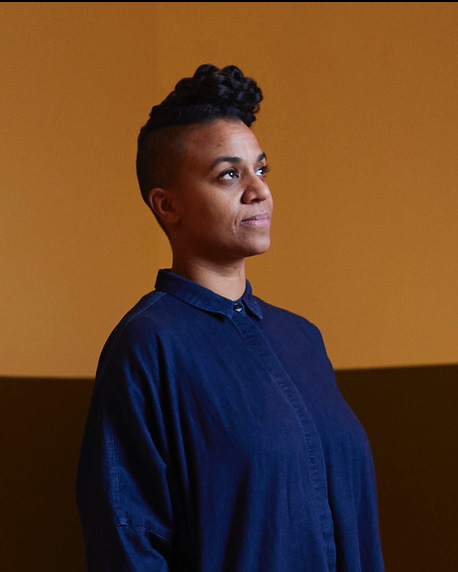
Canada is the latest country to reveal its artist choice for the 2024 Venice Biennale (April-November 2024), picking Kapwani Kiwanga, who works in video, installation, sound, performance and sculpture.
The National Gallery of Canada is the pavilion commissioner, while the National Gallery of Canada Foundation, a non-profit organization, supports the country’s representation.
Kiwanga’s multidisciplinary approach to art production has garnered international acclaim for her shrewd ability to create works that masterfully probe the structures, processes, and narratives behind contemporary power imbalances. Her works are designed and shown with particular consideration to the locations in which they are created and displayed. Before enrolling at the Beaux-Arts institution in Paris, Kiwanga studied anthropology and comparative religion at McGill University in Montreal.
Kiwanga received the 20th annual Prix Marcel Duchamp for her installation Flowers for Africa in 2020. During her 2013 residence in Dakar, she developed Flowers for Africa while researching iconographic photographs of celebrations and political gatherings related to Senegal’s independence in 1960. Kiwanga’s piece, which featured 16 floral arrangements on white podiums, was inspired by archival photographs of flowers during significant diplomatic occasions related to the independence of African nations. She received the Frieze Artist Award in 2018. In an interview with The Art Newspaper, the artist highlighted her Frieze New York installation named Shady, which was shown outside. The exhibit spurred discussion on themes ranging from colonial land acquisition to freedom of mobility.
“The NGC is proud to present Kapwani Kiwanga’s work for Canada at the 60th International Art Exhibition—La Biennale di Venezia. Widely recognized for her singular approach, Kiwanga’s work transforms rigorous research in imaginative ways to enable historically excluded narratives to flourish.” – Angela Cassie, Interim Director and CEO, National Gallery of Canada
Kiwanga’s show will be curated by Gatane Verna, executive director of the Wexner Center for the Arts in Columbus, Ohio, and former director of the Power Plant. In 2017, the French government designated Verna Chevalier of l’Ordre des Arts et des Lettres (Order of Arts and Letters). She was the director and artistic director of The Power Plant Contemporary Art Gallery in Toronto from 2012 until 2022.
